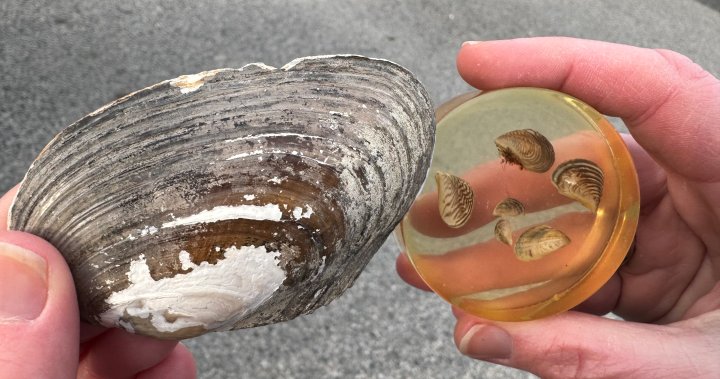
Okanagan Lake free of invasive mussels, says non-profit society
Global News
In September, the Idaho Dept. of Agriculture announced that quagga mussels had been found in the mid-Snake River, which is around 11 hours south of B.C.'s border.
It’s been 11 years since Okanagan Lake started being tested for invasive mussels and it’s the 11th year that it received a clean bill of health.
The Okanagan and Similkameen Invasive Species Society (OASISS) tested 131 samples from five lakes across the valley and found nothing,
The society says invasive mussels are a detriment to North American waterways, and the goal is to keep B.C.’s Southern Interior free of them — unlike many other parts of the continent, like Manitoba’s Lake Winnipeg, which is infested with mussels.
And in September, the Idaho Dept. of Agriculture announced that quagga mussels had been found in the mid-Snake River. The location where they were discovered is around 11 hours from the B.C. border.
“This discovery of invasive mussels so close to B.C. reinforces the importance of monitoring and continuing our prevention efforts,” said OASISS director Lisa Scott.
“The arrival of invasive mussels would have lasting negative impacts on our lakes and rivers, as we have seen in other parts of Canada and the U.S.”
These successes, Scott said, are in large part due to monitoring efforts funded by various bodies of government.
Scott said that the Snake River discovery means that the Pacific Northwest is no longer free of invasive mussels.




